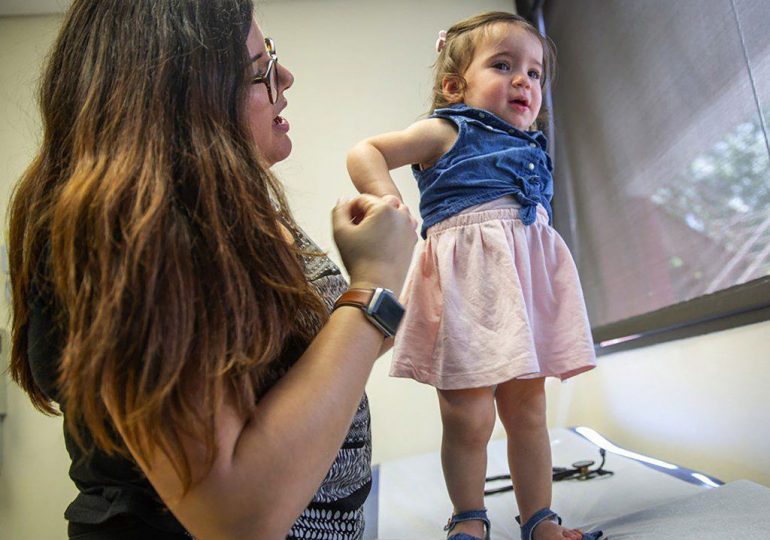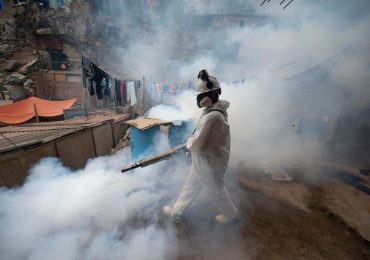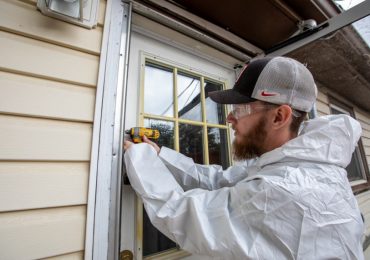The culture of public health and medicine rests on open discussions in which different points of view are considered for the betterment of patient care and health. This process depends on psychological safety so individuals feel free and safe to speak and openly disagree. These factors collectively create a just culture, which improves systems and organizations and is being widely implemented in healthcare nationwide.
[time-brightcove not-tgx=”true”]
However, in the face of politicized anti-science and anti-expert sentiment and attacks, we need to ask if just culture is being restricted in public health. Following a series of legislative policy changes in Florida affecting academic institutions, health care, and public health, we see a regression in the open dialog of medical and public health experts about infectious disease control practices related to COVID-19 and now measles.
On January 3, 2024, in marked opposition to the CDC, FDA, and medical and public health experts, State Surgeon General Dr. Joseph Ladapo recommended that everyone avoid COVID-19 mRNA vaccines over concerns that they contain DNA. This notion starkly contrasts ample scientific data showing that these vaccines do not alter a person’s genes, even if they contain minuscule amounts of DNA related to vaccine production. This announcement came on the heels of an earlier announcement on September 13, 2023, recommending that individuals younger than 65 not receive the updated COVID-19 vaccine, even though 25% of COVID-19 deaths have occurred in those younger than 65. Previously, he recommended that young adult men avoid the vaccine because of concerns about myocarditis. However, this risk of myocarditis is very rare, and the risk of myocarditis following COVID-19 is far greater than after vaccination.
Following these announcements, there was broad national criticism of these Florida-only policies. In contrast, the response by the Florida medical and public health community to these controversial recommendations, either in support or opposition, was modest. This tepid response contrasts the first years of the pandemic, when Florida medical organizations, medical schools, and public health experts often commented publicly about the state’s COVID-19 mitigation and vaccination policies.
Currently, there is a measles outbreak in a South Florida elementary school. Dr. Ladapo, not the county health officer, has stated that children at high risk for getting measles can attend school while potentially being contagious, leaving the decision to the parents. Although we are early in this outbreak, we are observing a similar situation where there is considerable national outcry against his recommendation, while the response from the Florida medical community is limited to a few practitioners.
Measles is a very contagious virus, 5 to 10 times more contagious than COVID-19, as it travels long distances and lingers in the air for hours. If an unvaccinated individual is exposed, there is a very high chance that the person will get the virus, which can result in encephalitis, pneumonia, and hearing loss.
Reflecting anti-vaccine and anti-science activity that has become part of the political agenda, rates of measles vaccination among young children have fallen below critical levels in many parts of the US. Not surprisingly, there has been a recent rise in measles cases in the US. The medical community overwhelmingly supports childhood vaccinations but is drowned out by policies that weaken vaccination requirements and misinformation that erodes confidence in vaccines.
Measles outbreaks can be controlled through early post-exposure vaccination measures and quarantining unvaccinated and exposed individuals for 21 days, spanning the incubation period. This recommendation is based on the fact that individuals with measles can be contagious for several days before they show symptoms. Even though more than 90% of the population may be vaccinated against measles in some parts of the U.S., those who are unvaccinated or medically compromised are at high risk if exposed, irrespective of community vaccination rates.
Having a child out of school for three weeks is a long time. Yet, coming out of the pandemic, we have widely available tools to facilitate remote learning, which the school has implemented. When parents do not feel comfortable that an outbreak can be controlled, it is natural for them to keep their children out of school. It was reported that almost 20% of the student body was absent several days after this outbreak, even in this school, which had previously reported high vaccination rates. Was it considered that emphasizing standard measles control policies are being followed, rather than allowing children with potential measles to go to school, could boost attendance?
We need to ask what has happened over the past year to discourage the airing of views contrary to state policies. Is there self-censorship or external censorship? Was there opposition to these recent recommendations by Dr. Ladapo from inside the Florida Department of Health? The answer may lie in reviewing recent legislative and state actions that may give medical experts and those at academic institutions pause in speaking out.
First, a law was passed allowing faculty tenure to be revoked at state universities, meaning faculty with secure positions can now be fired. Florida University faculty members have stated that this policy limits the freedom of experts to speak openly over fears of retribution.
Second, the Medical Freedom bills signed into law in Florida on May 11, 2023, now allow physicians to make public, unsubstantiated, and false claims without consequence. Medicine has regulated itself to keep the public safe. Without these guardrails, inaccurate information can increase without the proper checks of hospital credentialing boards and medical societies. Does this new law make physicians powerless to challenge false and potentially harmful medical information?
Third, the state regulates hospital funding and Medicaid patient care reimbursement rates. University, medical school, and hospital leadership administrators may thus be concerned when faculty members speak publicly and run afoul of political leaders.
Fourth, we see the state dictating what can and cannot be taught at K-12 schools and public universities, something unheard for college and universities in the past. Recently, the Florida Board of Governors banned sociology from the core curriculum of the university system. Considering that the most popular majors at the University of Florida, for example, are psychology and biological sciences, for which sociology is foundational, one needs to ask if the state policy is in the student’s best interest.
Fifth, healthcare providers are now being drawn into culture wars. Medical organizations are also being investigated for health-related issues at the state and national levels.
We now see what happens when policies threaten the perceived ability of medical experts, university experts, medical societies, and public health employees to speak openly. Public discussion about crucial public health state policies fades.
Florida once took its place among the states with the highest COVID-19 vaccination rates for those older than 65 in the US and was among those with the lowest COVID-19 death rates per capita, ranking 29th in the spring of 2021. In contrast, Florida currently has one of the lowest booster COVID-19 vaccination rates in the U.S. and ranks 8th in COVID-19 deaths per capita. Now, Florida has a serious measles outbreak and is not following standard measures of infection control by allowing potentially contagious children to return to school.
Considering the high vaccination rate of 97% at the outbreak site, this outbreak will be contained. But what will happen when measles lands in a school or community with lower vaccination rates and standard public health measures need to be followed?
Do we really want to limit discussions about infectious disease control policies? We have learned the clear advantages of a culture that considers different viewpoints in medicine and public health.
Leave a comment









